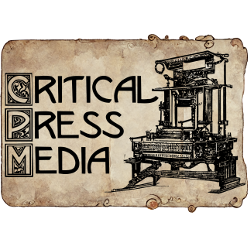Welcome to the first weekly installment of The Writer’s Block blog. Every weekly entry will feature tips, encouragement, advice, best practices, and red flags for new, aspiring, and established writers. Wait … why target established writers? Don’t they already know what they’re doing? Well sure, but every one of those guys will tell you that every well of creativity needs a little rainfall to top it off, in this case, I assume they’re looking for affirmation and encouragement. And maybe, if I’m lucky, someone more experienced than I will take the time to agree or disagree with what I have to say. Enough marketing talk, on to the good stuff!
Nanowrimo is behind us again, and the writer now has a novel in need of editing. This is the time for him to look critically at all aspects of his manuscripts, decide what works, and excise what doesn’t. One important part of the editing process is tracking down and removing those portions of the manuscript that don’t pay off for the reader, we’ll call them “red herrings”. This process helps improve form, and is an important component of circular storytelling.
In chasing red herrings, we’re really only concerned about three types. The first type of red herring is the conventional misleading clue that causes a detective to come to an incorrect conclusion. We are applying the same principle to the reader in the following way: the first red herring is a portion of the manuscript that causes the reader to expect a certain payoff, but substitutes a different payoff. This is the “bait and switch” approach common in mystery and horror stories, and there is nothing wrong with it at all. The writer must only make certain that the reader, in receiving a payoff other than then one he expected, still feels validated for having spent time chasing the hook. A reader who feels cheated, who feels the writer isn’t playing fair, is a reader lost.
The second red herring involves a hook intentionally or inadvertantly set by the writer that fails to pay off for the reader. In it’s simplest form it involves the principle behind Chekhov’s gun – a gun present in the first act must be fired by the third. When tieing up Loose Threads, the writer seeks to find all of his red herrings and land them safely in the net. Now that the novel is “finished”, any red herrings the writer finds still on his hook need to be cast back into the ocean. By removing those plot and character hooks that fail to pay off for the reader entirely, the writer tightens up his story construction, and reduces the opportunity to disappoint the reader.
Excising these extraneous portions of the manuscript is easier and less painful than it sounds. Chances are, if a hook fails to produce a payoff, it wasn’t very important to the story to begin with. These types of red herrings are often found in concert with other hooks that do lead to a payoff, allowing the writer to eliminate redundancy in the manuscript while tightening the plot. Most often, hooks are left dangling simply because the writer has forgotten about them; removing the initial mention of the hook from the story will often neither impact the plot at all nor change the characterization.
Identifying a flopping red herring may be a little more complicated. The easiest solution is to give the manuscript a quick read and periodically ask, “Whatever happened to…” If no answer to the question is apparent, throw that herring back! Looking a little deeper, whenever two plot or character hooks are dropped at once there is a good chance that one of them may be a duplicate. If the payoff for any given hook happens at the same time in the same way, and is in fact the same as, the payoff for another hook, the writer has an opportunity to tighten the manuscript by removing the duplicate reference. With each hook that surfaces, the writer has a new opportunity to decide if it pays off, pays off successfully, or simply gets in the way. Each herring must be kept, cured, or thrown back as needed.
Which leads us to the final red herring – a time-honored salty snack that every writer needs to keep handy by his workplace. No, don’t try to eat them (unless you’re from Maine or just really, really British), just keep them there as a reminder that this is the kind of food you’ll have to eat if you cannot master your writing. It’s good motivation!
Last 5 posts by Winston Crutchfield
- Disney Kingdoms comics - July 7th, 2017
- Sonic the Hedgehog - June 19th, 2017
- He-Man / ThunderCats - June 5th, 2017
- Scooby Apocalypse - May 15th, 2017
- Wacky Raceland - May 1st, 2017

